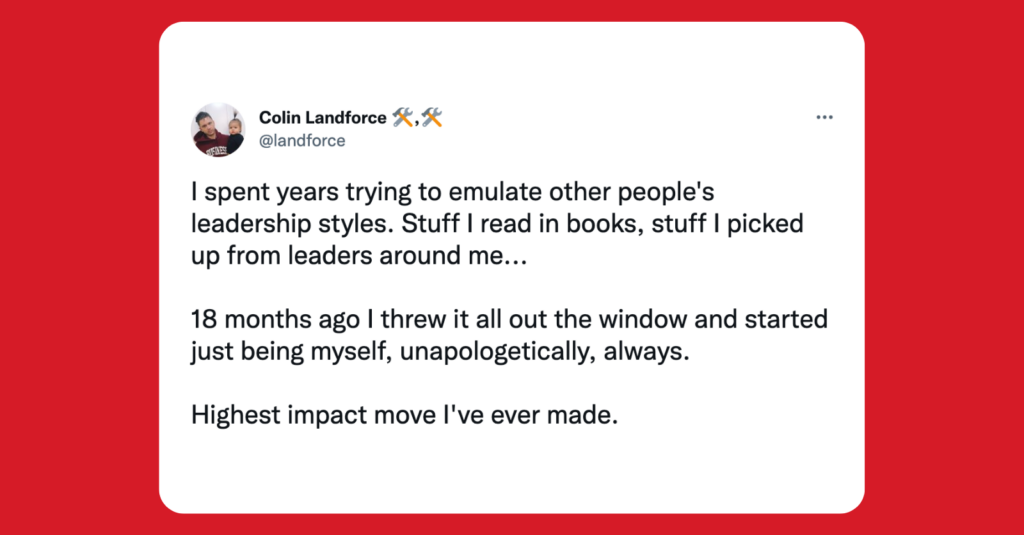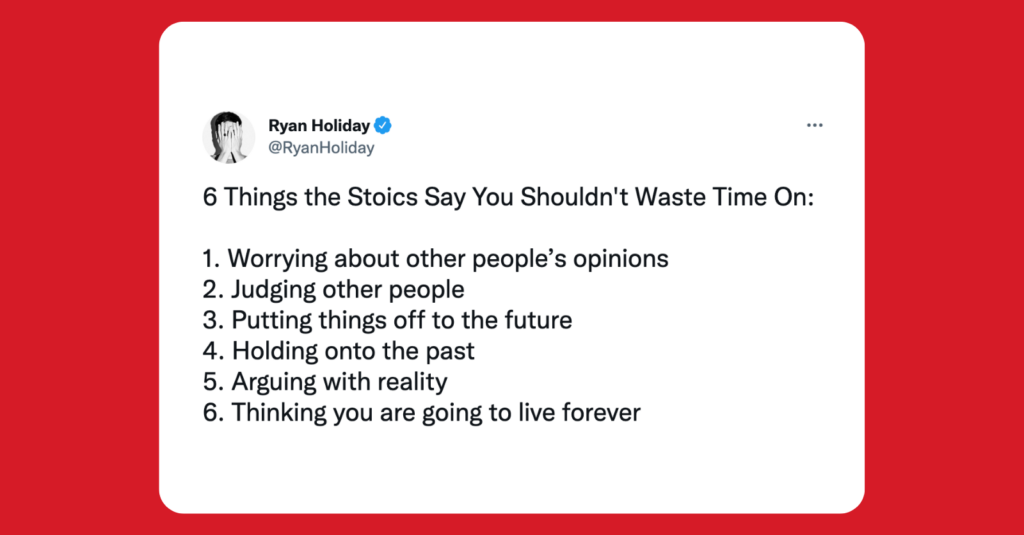23 August 2022 | People and Culture
What bad habits did your old boss teach you?
By

I’ve been looking forward to diving a bit into this Tweet by my friend Colin.
A trap many founders and leaders struggle with is trying to lead the same way they were led.
There is value in learning from others, but it can also lead to picking up bad habits.
Here is an example:
Early in my career, I had a manager who would schedule meetings with me and then spend the majority of our time together replying to emails. I took this as a best practice. I figured that to be a good manager, you had to multitask at all times.
This is a terrible lesson to learn.
I realized this was a mistake during a meeting with one of my team members just a few months later
“Jacob, we’ve been talking for 15 minutes, and you’ve replied to 5 emails. Are you even listening to me?”
Ouch!
I thought I was learning, but I picked up a bad habit.
It’s easy to look at the people who have achieved success and feel like we have to emulate their style. The truth is you will be at your best when you take the time to understand yourself and your strengths.
I’m a big Leadership Book guy. Reading has been a valuable habit to form and has accelerated my development as a leader and coach.
I wasn’t just reading books in a closet, though. I was reading books while I was leading teams and working with leaders. The books I read helped me better articulate why my actions positively impacted the team and the lessons I learned from my failures.
Development and self-awareness are a combination of input (reading, listening to podcasts, meeting with mentors, etc.) and output (taking action).

I agree you shouldn’t waste time on anything on this list, but let’s focus on looking at #2 through the Leader’s Lens.
When things get stressful, judging and criticizing the people around you can get really easy.
It probably feels like there are times they can’t do anything without you.
The challenge for leaders is to push past this perspective and take time to understand why people do the things they do.
It’s impossible to do this well while you are frustrated or stressed–take time to decompress, workout, go on a walk, meditate, focus on your breathing, or whatever works for you.
Then think critically about what actually happened while assuming the best intentions of your team.
- Did they have the tools needed to do the job?
- Were expectations clear?
- Did they understand why the job was important?
Taking this approach is the only way to help your team and organization grow.
By assuming the problem is your people, you’ll miss out on opportunities to grow as a leader and improve systems in your organization.